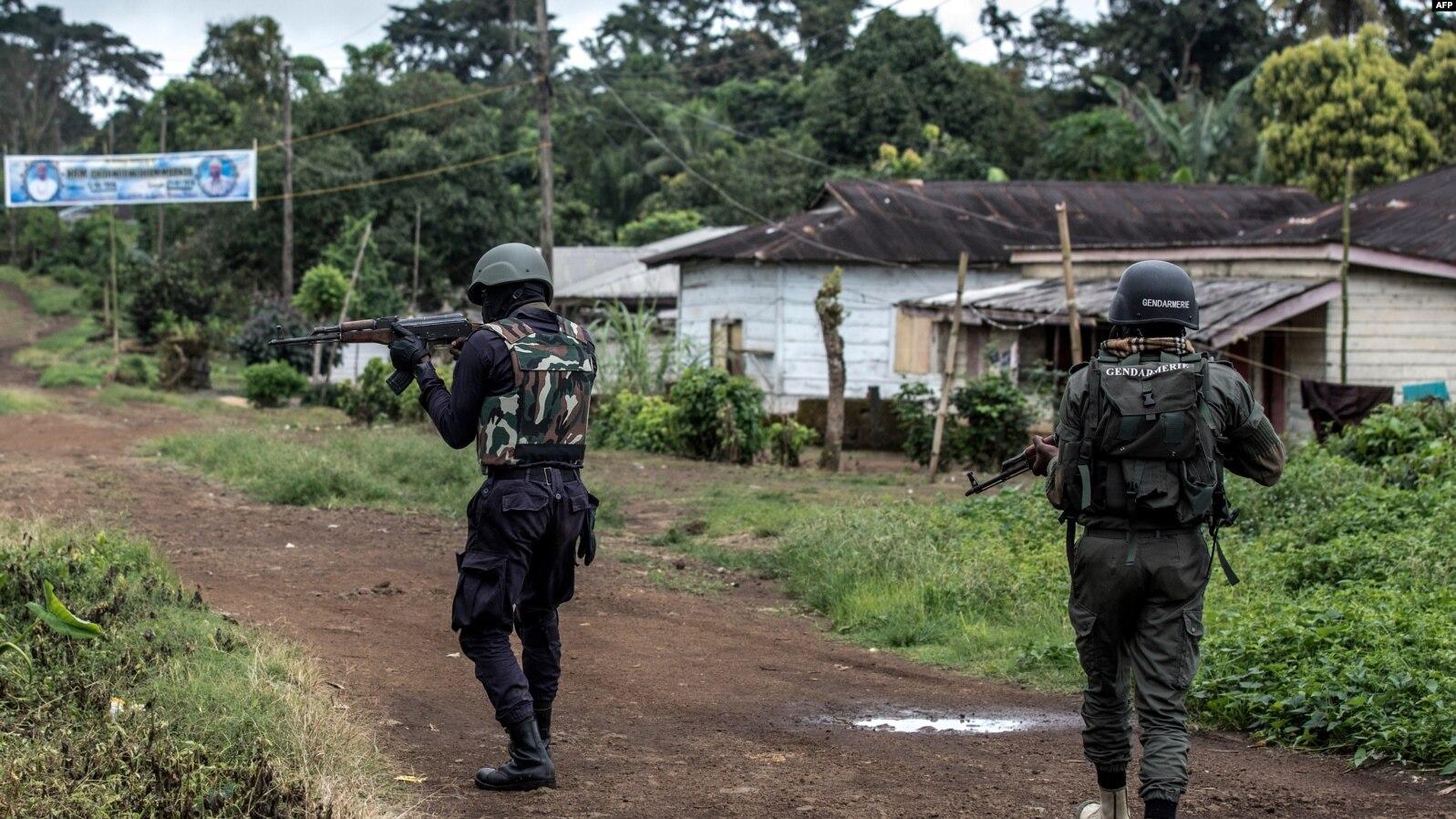YAOUNDÉ, Cameroon – A distressing image is circulating on social media. The bodies of four young people have been dumped into the Ndzengwev stream in Kumbo – a flashpoint of separatist violence in Cameroon’s North West region.
“The military raided Kumbo on April 8 and killed the four suspected fighters. They then transported the corpses in a military truck and dumped them in the stream,” a local resident who asked for anonymity told Crux.
Such attacks are recurrent in Cameroon’s English-speaking North West and South West regions, where separatists since 2016 have been engaging government forces in open combat to create a breakaway state to be called Ambazonia.
Despite such attacks, the Archbishop of Bamenda, Andrew Nkea Fuanya, said he believes calm is gradually returning to the two regions. Bamenda is the capital of the North West region, which is one of the epicenters of the violence.
The President of the National Episcopal Conference told Crux, “the situation in the North West is relatively calm.”
He attributed the relative calm to the administration of the region which he said is working to unite people and return them to normal life.
“People have gone back to their jobs, schools have reopened and businesses are going on,” the archbishop said.
Father Gastien Ndongo was recently transferred to the West region from Mamfe in the troubled South West region. He echoed similar sentiments, but warned that people still need to be vigilant.
“This calm could be deceptive. The separatists could still be lurking underground planning to strike and therefore people must remain vigilant,” the priest told Crux.

The turmoil began in October 2016, following the harsh crackdown on the calls from teachers and lawyers for reforms in the educational and legal systems of the English-speaking areas. The forceful reaction of the authorities to the population’s grievances escalated into violent confrontations.
RELATED: Cameroon archbishop explains country’s multi-faceted crises
The seven years of violence has left at least 6,000 people dead, and forced more than one million others from their homes, according to Human Rights Watch.
Peace has continued to elude the Anglophone regions. The government’s efforts, including a 2019 Major National Dialogue, yielded minimal progress due to the exclusion of principal separatist figures. The outcomes of the dialogue conferred a vague “special status” to the Anglophone regions.
The search for peace and justice
Separatists – along with some conflict analysts and clergy – have insisted that it would be impossible to obtain peace without justice for the country’s Anglophone population.
In an earlier interview, the Bishop of Kumbo – a flashpoint of separatist violence spoke about the need for justice, noting that both justice and peace must go hand in hand.
“Justice and peace go hand in hand and when we talk about these two intertwined issues, we are talking the mind of the Church,” Nkuo told Crux.
‘You can’t have peace without justice; there is a lack of peace today because there has been an unjust situation which has been perpetuated. And we aren’t just talking about the Anglophones in Cameroon. The Scripture tells us: if your hand is aching, the whole body is sick. So Cameroon is sick, and needs healing,” he explained.
It is a point of view that the archbishop of Bamenda doesn’t share.
Speaking to Crux on the sidelines of the ongoing 49th Plenary Assembly of the National Episcopal Conference, Nkea said that it is possible to obtain peace before seeking for justice.
“There is a lot of injustice in the United States of America. They are not fighting and killing each other,” the archbishop said.
He called on belligerents in Cameroon to put down their weapons and use the instruments of the law to seek justice.
“Peace means that we understand ourselves: I respect you, you respect me. At the same time, we use the instruments of the law to make sure that there is justice,” he said.
“Since this war in the North West and South West, thousands of people have been killed. Have we arrived at justice? And therefore, wherever there is justice, there are still people who are disgruntled. You can never satisfy everybody. And therefore, if you talk about justice in terms of satisfying everybody that can never happen anywhere in the world. That can exist in heaven, not on earth, and even in heaven, Lucifer also rebelled,” Nkea said.
Government goes tough on terrorism financing
As a way of chipping away the rising power of separatist fighters, the Cameroon Minister of Territorial Administration, Paul Atanga Nji, has given telecommunications networks 60 days to provide details of their subscribers. He said there were unregistered subscribers in the two embattled regions who are financing separatists who he frequently refers to as terrorists.
Nji said identifying telephone subscribers in the two regions will help block the routes used to circulate money to terrorists.
“We cannot jeopardize the security of the state for any purpose,” Nji said during the April 8 meeting with mobile telephone operators.













